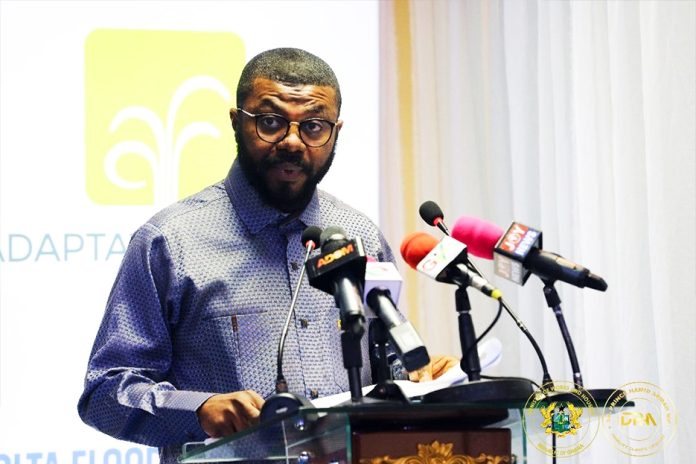Dr. Prince Hamid Armah, deputy minister for Works and Housing (MWH), says adopting early warning systems (EWS) in climate change management is an indispensable tool for minimising the adverse impacts on lives, livelihoods, infrastructure, and ecosystems.
He said the EWS are important because they provide timely, accurate, and reliable information about impending extreme weather events and allow communities, governments, and organizations to prepare and respond adequately and effectively.
Dr Armah was speaking at the closing ceremony of the Volta Flood and Drought Management (VFDM) Project held last week Friday, June 21, 2024.
“It is in the light of this that I recognise the development and operationalisation of the MyDewetra Volta Alarm System, during this Volta Flood and Drought Management (VFDM) Project, entitled ‘Integrating Flood and Drought Management and Early Warning for Climate Change Adaptation in the Volta Basin,’ as a significant step toward reducing vulnerabilities and increasing the adaptive and coping capacities of our communities to respond to the impacts of climate change at local, regional, and national levels in the Volta Basin countries,” he said.
The Deputy Minister said the effort of organisations such as World Meteorological Organisation (WMO), Volta Basin Authority (VBA), Ghana Meteorological Agency (GMet), Ghana Hydrological Authority (HYDRO), Water Resources Commission (WRC), National Disaster Management Organisation (NADMO) in disaster management cannot be overemphasised.
In furtherance of this, he said the government had taken steps to empower two agencies in disaster risk management, to contribute to global efforts in protecting lives and livelihoods against the events of climate change.
The deputy minister added that the empowerment of operations of these agencies – the Ghana Meteorological Agency (GMet) and Ghana Hydrological Authority – would contribute to the advancement of early warning systems, which are necessary for tackling challenges associated with climate change.
According to him, the GMet was given the green light to recruit as much as 250 staff and procured 26 Automatic Weather Stations (AWS), Calibration Equipment, a Message Switching System, and 15 vehicles to enhance the efficiency of the Authority’s operations in delivering weather and climate services in Ghana.
The government by the enactment and passage of Act 1085 by Parliament transcended the Hydrological Services Department to become an autonomous body to protect lives and livelihoods.
The deputy minister asserted that these investments are evidence of the seriousness that the government attaches to the increasing threats, including extreme weather events, floods, droughts, rising sea levels and heatwave posed by climate change.









